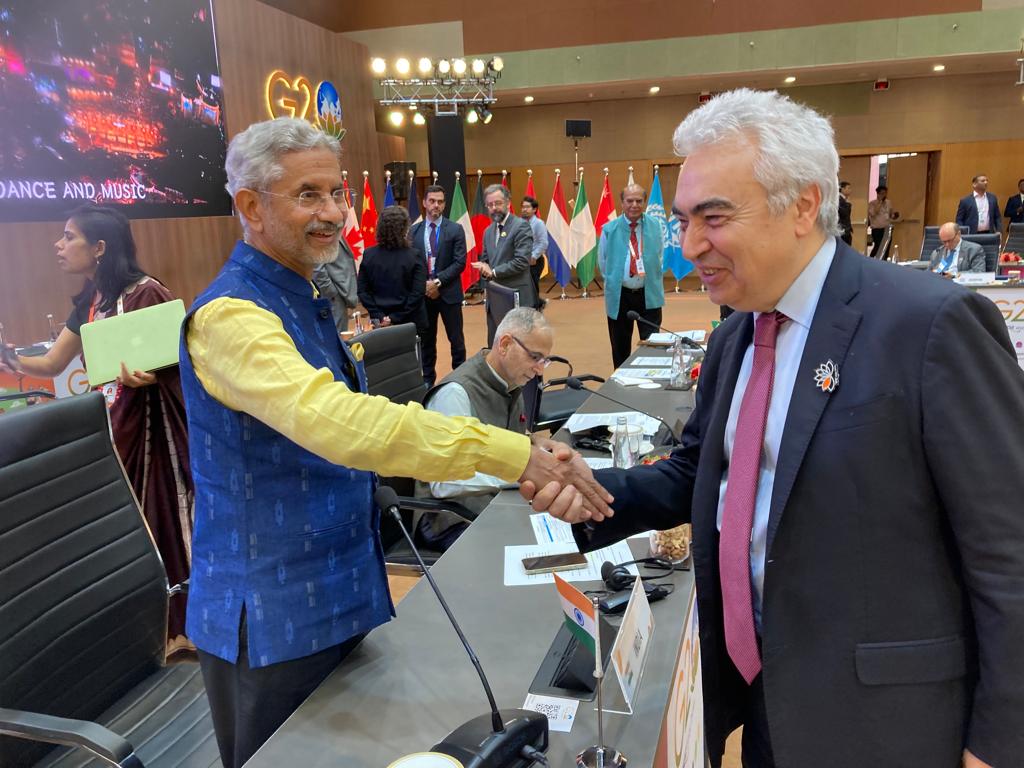He emphasized on the advanced economies and the broader international community mobilizing more of the necessary finance…reports Asian Lite News
G20 should come up with an ambitious agenda on clean energy investment, according to Fatih Birol, the Executive Director of International Energy Agency (IEA).
Citing lack of investment in the global south, he said: “Clean energy investment has soared in recent years and is set to reach more than $1.7 trillion this year. But it is not evenly spread. Advanced economies and China account for 95% of the growth in clean energy investment since 2015. And the Netherlands – without any disrespect to the Netherlands, a small country and with quite grey weather – has more installed solar PV capacity in 2022 than the entire continent of Africa. Let that sink in for a moment.“
“To remedy this, we need an ambitious agenda from the G20 on clean energy investment, including making sure that our development finance institutions have the mandate, flexibility and the funds to play their part,” he said while addressing the G20 Development Working Group Ministerial.
He emphasized on the advanced economies and the broader international community mobilizing more of the necessary finance.
“Of course, each country will choose its own pathway. But the emergence of the new clean energy economy opens huge opportunities for developing countries to fuel their development in a clean, sustainable, affordable and secure way.”
He noted that in the current scenario, economic growth and development must be pursued in an environmentally sustainable way, addressing biodiversity loss, climate change and air pollution together.
Birol was of the view that there is a need for a new participatory and inclusive approaches to revolutionize the link between development, the environment and energy.
“When we look at the energy situation today globally, we still see a stark divide between the haves and the have-nots, between advanced economies and developing economies, between rich and poor. Half of global CO2 emissions today come from just 10% of the global population. Many of the countries that have contributed the least to causing climate change are, at the same time, the most exposed to its devastating effects. That is profoundly unjust.”
He noted that the situation has been made worse by the pandemic and global energy crisis.
Observing that the an average person in sub-Saharan Africa consumes 20 times less electricity than the average person in an advanced economy and over 600 million people in sub-Saharan Africa still lack any access to electricity, he said that ensuring people-centred energy transitions, and facilitating the investment and financing in emerging and developing economies must be made a greater priority.
Energy transitions are central to the G20 agenda. In 2023, during India’s presidency, the geopolitics and governance of energy have become immensely challenging, as the shift from fossil fuels to renewable energy, concerns about energy security and, in many cases, the pressure on keeping financial commitments made related to tackling climate change have become complicated.
The International Energy Agency counts 20 million more people worldwide without electricity now compared to 2021. Predictably, the worst-affected are in sub-Saharan Africa, which is back to its lowest rate of electrification since 2013. In Europe, the number of people experiencing inadequate energy supply has risen to 80 million from 34 million in 2021.
Even middle-income countries in Africa, South America and Asia face fuel and electricity shortages and high levels of inflation. Reduced availability of energy is hurting economies as industries close, and is impacting public health as safe fuels such as cooking gas become expensive. A number of countries also face a balance of payments crisis, partly driven by high energy costs. “Energy poverty” is global and widespread, impacting technology implementation, industry and sustainable development goals — all of which are also G20 goals.
An independent task force initiated by Gateway House in October 2022 seeks urgently to find ways to provide energy access, security and affordability. This requires resolving the conflicts between short-and long-term energy targets, addressing energy disruptions caused by the Covid-19 pandemic and the Ukraine-Russia conflict, and using creative financing to accelerate the development and adaptation of renewable technologies and new business models utilising these technologies. The G20 has a key role to play in advancing solutions.
A possible game-changer could be the creation of a Global Climate Finance Agency to better integrate and drive this global agenda, including at very practical levels. The agency could be mandated to lower hedging costs to mitigate a key risk faced by developers of green projects and to insure major clean energy projects from potential losses due to problems such as the failure of government utilities to meet supply and payment obligations — a persistent issue in developing countries, including India.
ALSO READ-US to prioritise green energy collaboration with India

Leave a Reply